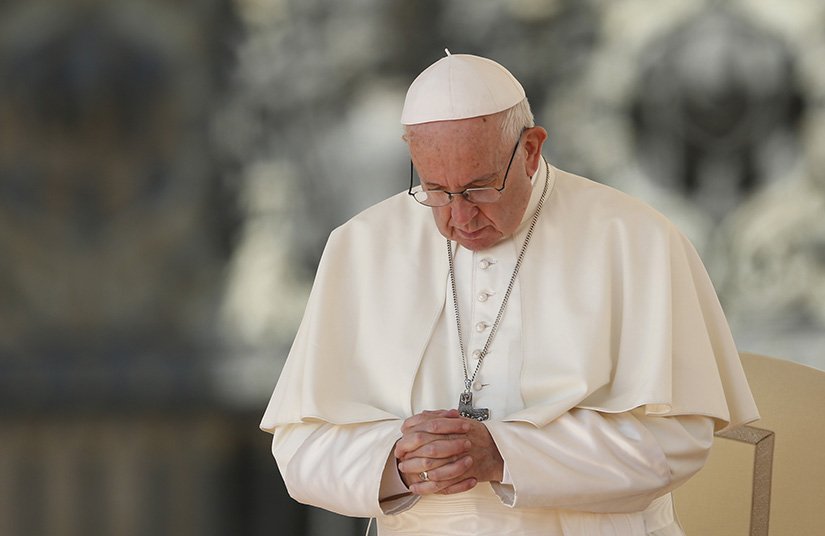WHO PICKS BISHOPS?
Photo courtesy of Paul Haring, Catholic News Service
WRITTEN BY:
Fr Leonard Danvers, Diocesan Vicar-General
READ TIME:
3 mins
In these past couple of months, I’ve been asked several times, “Who picks bishops?” The short answer is the pope, but I think there’s another question really being asked: “What’s the process that’s followed for someone to become a bishop?
There have been a variety of processes over time. The Church’s first encounter with the need to “choose a bishop” is found in the Acts of the Apostles. There you read about the tragic situation of Judas’ departure and the desire of the infant Church to continue with “the twelve.” In Acts 1:15-26 we see some important aspects of the process of choosing a replacement for Judas.
Prayer – the infant Church gathered to seek the guidance of the Holy Spirit.
Suitability – the one chosen must have been a constant companion in Jesus’ ministry.
Peter – its Peter who authenticates the need and directs the process.
There is more than one candidate.
The drawing of lots as the means to choose the right man.
The choice fell to Matthias and he was added to the eleven.
Over the centuries the Church has used different methods to choose bishops. There have been elections and appointments by secular rulers. Some results were good, others not so good. Some relatives of kings and emperors were named bishops and they were much more temporal rulers than priestly shepherds.
Since that time there have been changes which resulted in a more “centralised” process. The process is shrouded in secrecy. This is to prevent “electioneering” and to preserve the reputation and rights of those involved.
The bishops of the country or province draw up a list of those who are considered worthy candidates. So, what do they look for? Some qualities would be personal health and work capacity. Human qualities – are they practical, do they exercise sound judgement, do they have a sense of justice, have they the ability to relate with people from all backgrounds. Are they a person of prayer, faithful to the Church and her teachings. Pastoral abilities – are they able to preach well, are they a teacher with a concern for justice and the poor. Leadership qualities – have they the ability to analyse a situation, make a decision and act on it. Are they able to work collaboratively?
Canon 378 of the Code of Canon Law states, among other requirements, these
points: a good reputation, at least 35 years of age, ordained for at least five years. The priest may belong to the diocese needing a bishop or to another, and may be a member of a religious order.
When a list has been drawn up it is sent to the apostolic nuncio, the diplomatic representative of the Holy See. He then conducts further inquiries based on a questionnaire. This may be sent to other bishops, priests, religious and laity. All who are consulted are asked to maintain strict confidentiality not only about the candidate(s) but also about their own involvement in the process.
Once the nuncio has gathered this further information, he may add his own comments, and then sends the file to the Congregation for Bishops in Rome. They then make the final recommendation to the Holy Father, who makes the final choice. So, you can see it is quite an involved process.
So let us continue our part and pray for the guidance of the Holy Spirit on the process. The priests of the diocese were invited to offer a Mass on Sunday May 1 in their parishes especially for the election of a new bishop, and to include a Prayer of the Faithful for the same intention on the Feast of St Peter Chanel, our diocese’s patron saint, on April 28.
Prayer for a new bishop:
Praise to you, Lord our God,
Our eternal shepherd and guide.
In your faithfulness, grant to the Diocese of Hamilton a shepherd whose watchful care and kindly zeal will continue the good work of his predecessors.
In your love for us, give us a shepherd, one who will lead us in being Christ’s heart of mercy, voice of hope and face of your compassion for our world today.
Help him to fill our hearts and minds with the truth of the Gospel, the power of the sacraments, and the desire to build up your Holy Church.
We ask this through our Lord Jesus Christ, your Son, in the unity of the Holy Spirit, God for ever and ever. Amen.



